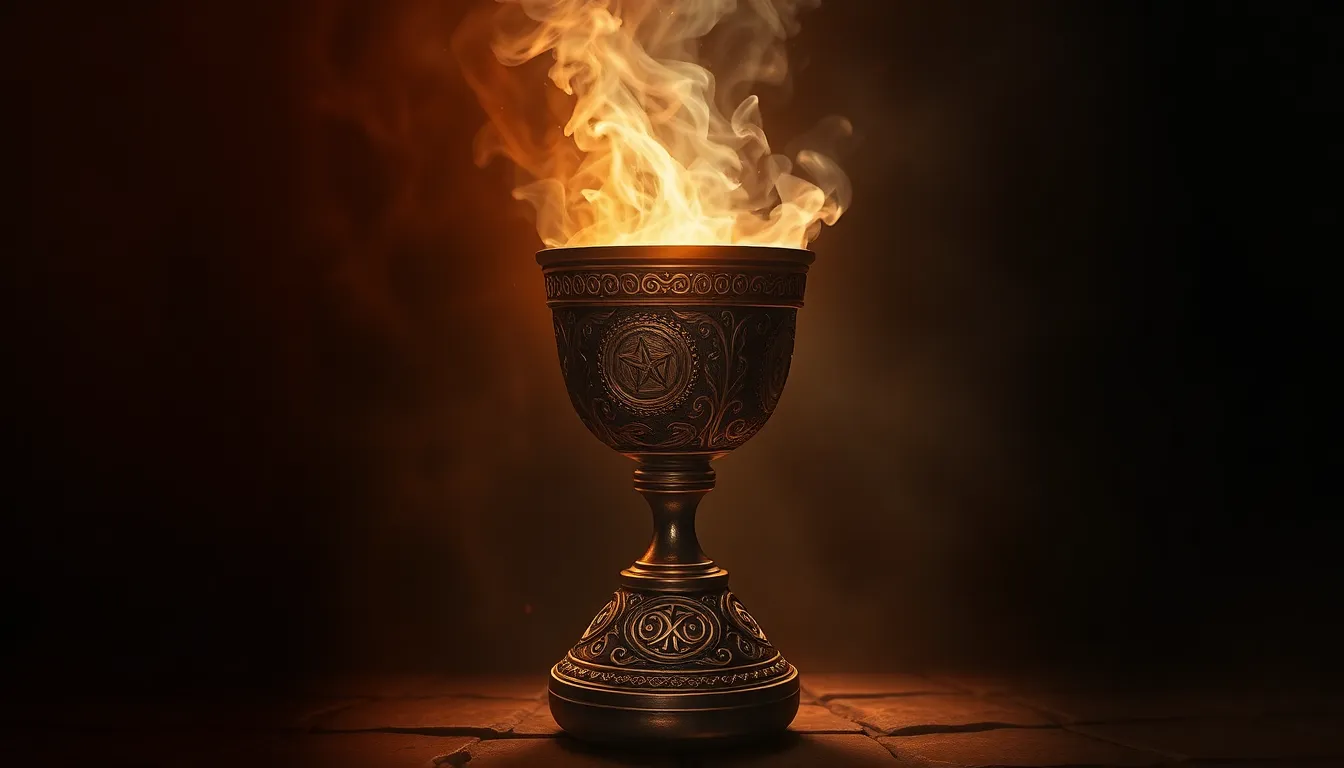The Price of Hubris: How the Gods Enforced Divine Punishments
I. Introduction
Hubris, a term that originates from ancient Greek, refers to excessive pride or self-confidence, often leading to a downfall. In mythology and literature, hubris is frequently depicted as a fatal flaw that brings about the wrath of the gods. This theme of divine punishment for human arrogance is prevalent across various cultures and serves as a cautionary tale for humanity.
This article aims to explore the consequences of hubris through mythological examples, examining how different cultures interpret divine retribution and the moral lessons that emerge from these narratives.
II. Understanding Hubris: The Fallacy of Excessive Pride
Historically, hubris has been recognized as a significant issue in ancient civilizations, where the relationship between mortals and deities was of utmost importance. The Greeks, for instance, viewed hubris as not only a personal failing but also a transgression against the divine order.
The psychological underpinnings of pride and arrogance often stem from a desire for recognition and power. Individuals exhibiting hubris may believe they are above the laws of nature or society, leading to catastrophic consequences. This arrogance can act as a catalyst for conflict between mortals and deities, as seen in numerous myths.
III. The Role of Divine Beings in Enforcing Punishments
Different pantheons have their unique perspectives on hubris and the role of divine punishment. Here’s an overview:
- Greek mythology: Zeus and the Olympians often punished mortals for their hubris, reinforcing the idea that no one, not even kings, is above the gods.
- Norse mythology: Odin and the Aesir enforced their values through trials and tribulations, reminding mortals of their place in the cosmos.
- Hindu mythology: The concept of karma plays a significant role, with divine intervention often manifesting as a balance to excessive pride and wrongdoing.
In essence, these deities maintain cosmic order by ensuring that hubris does not go unpunished, illustrating the precarious balance between mortals and the divine.
IV. Iconic Myths of Hubris and Divine Retribution
Several myths epitomize the dangers of hubris and the resulting divine retribution:
- The tale of Icarus: Icarus, in his ambition to fly higher than any mortal, ignored his father’s warnings and flew too close to the sun, causing his wax wings to melt and leading to his tragic fall.
- Arachne and Athena: Arachne boasted of her weaving skills, challenging the goddess Athena to a contest. Her arrogance led to her transformation into a spider, symbolizing the consequences of defying the gods.
- King Midas: The infamous story of King Midas, who wished that everything he touched turned to gold, illustrates the curse of greed and desire, leading to his isolation and despair.
V. The Impact of Divine Punishment on Human Behavior
The fear of divine punishment played a crucial role in shaping human behavior in ancient societies. The reverence for gods and the moral lessons derived from myths of hubris served as guiding principles.
From these myths, societies learned:
- The importance of humility and respect for the divine.
- The dangers of excessive pride and the potential for downfall.
- The need for accountability and ethical behavior in interactions with others.
These lessons influenced cultural norms and ethics, serving as a framework for the conduct of individuals within the community.
VI. Hubris in Literature and Modern Interpretations
Hubris is a recurring theme in classic literature, with notable examples including:
- Shakespeare: Characters like Macbeth and King Lear embody hubris, leading to their tragic downfalls.
- Milton: In “Paradise Lost,” Satan’s rebellion against God exemplifies the ultimate hubris, resulting in his eternal damnation.
Modern adaptations and reimaginings of these stories continue to explore the theme of hubris, demonstrating its relevance in contemporary society. Today, hubris can manifest in various forms, from corporate greed to political arrogance, reflecting a timeless human struggle.
VII. The Psychological and Sociological Implications of Hubris
Individuals exhibiting hubris often display specific psychological profiles, characterized by narcissism and an inflated sense of self-worth. These traits can lead to a disconnect from reality, resulting in poor decision-making.
Society’s reaction to hubris typically involves a mix of admiration and disdain, highlighting the complex nature of ambition and accountability. Leaders who exhibit hubris may initially inspire others, but their eventual failures can lead to significant consequences for the communities they lead.
Striking a balance between ambition and humility is essential in leadership roles, ensuring that the drive for success does not overshadow ethical considerations and respect for others.
VIII. Comparative Analysis: Hubris Across Cultures
Examining hubris across cultures reveals both similarities and differences in its depiction:
- Many cultures portray hubris as a significant flaw, often resulting in divine punishment.
- While the specifics of the myths may vary, the underlying message remains consistent: excessive pride leads to downfall.
- Cross-cultural lessons about pride emphasize the importance of humility and the recognition of one’s limitations.
The universality of hubris as a theme in mythology underscores its relevance to the human experience, serving as a reminder of the delicate balance between aspiration and overreach.
IX. Conclusion
In conclusion, the exploration of hubris and its divine repercussions reveals profound insights into human nature and societal values. Through mythological examples, we witness the dangers of excessive pride and the importance of humility. As we navigate our ambitions in contemporary society, the lessons derived from these ancient narratives remain pertinent, encouraging us to reflect on our actions and their potential consequences in our lives and communities.



